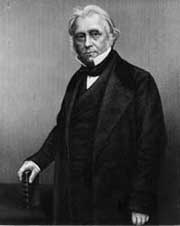Tamil Surangam - Finance / Insurance, Best Life Insurance Plans in India 2025, Health Insurance for Senior Citizens, Car Insurance Online Quotes, Home Loan Interest Rates 2025, Best Credit Card for Cashback, Mutual Funds Investment for Beginners
Health / Medical, Best Diabetes Treatment Hospitals in Chennai, Hair Transplant Cost in India, IVF Treatment Success Rate, Online Doctor Consultation Apps, Health Supplements for Weight Loss, Best Ayurvedic Treatment in Tamil Nadu
Education / Career, NEET Coaching Centres in Tamil Nadu, Best Online Courses for IT Jobs, Study in Canada without IELTS, Free Scholarships for Indian Students, Online MBA Programs 2025, Best Coding Bootcamps in India
Technology / Software, Best Web Hosting for WordPress India, Domain Registration Offers, Digital Marketing Course Fees in Chennai, Cloud Storage for Businesses, AI Tools for Content Writing, Cyber Security Certification Online
Travel & Tourism, Cheap Flight Tickets from Chennai to USA, Best Travel Insurance for International Trips, Top 10 Tourist Places in Tamil Nadu, Luxury Hotels in Ooty / Kodaikanal, Visa Consultants in Chennai, Honeymoon Packages in Maldives
Tamil Data Warehouse, Shopping, Gold, Science, General Knowledge, Spirituality, Astrology, Medicine, Women's Area, Comedy, Tamil World, Cinema, Literature,
Insurance, Loans, Mortgage, Attorney, Credit, Lawyer, Donate, Degree, Hosting, Claim, Conference Call, Trading, Software, Recovery,
Transfer, Gas/Electricity, Classes, Rehab, Treatment, Cord Blood
Tamil Surangam - Finance / Insurance, Best Life Insurance Plans in India 2025, Health Insurance for Senior Citizens, Car Insurance Online Quotes, Home Loan Interest Rates 2025, Best Credit Card for Cashback, Mutual Funds Investment for Beginners
Health / Medical, Best Diabetes Treatment Hospitals in Chennai, Hair Transplant Cost in India, IVF Treatment Success Rate, Online Doctor Consultation Apps, Health Supplements for Weight Loss, Best Ayurvedic Treatment in Tamil Nadu
Education / Career, NEET Coaching Centres in Tamil Nadu, Best Online Courses for IT Jobs, Study in Canada without IELTS, Free Scholarships for Indian Students, Online MBA Programs 2025, Best Coding Bootcamps in India
Technology / Software, Best Web Hosting for WordPress India, Domain Registration Offers, Digital Marketing Course Fees in Chennai, Cloud Storage for Businesses, AI Tools for Content Writing, Cyber Security Certification Online
Travel & Tourism, Cheap Flight Tickets from Chennai to USA, Best Travel Insurance for International Trips, Top 10 Tourist Places in Tamil Nadu, Luxury Hotels in Ooty / Kodaikanal, Visa Consultants in Chennai, Honeymoon Packages in Maldives
Tamil Data Warehouse, Shopping, Gold, Science, General Knowledge, Spirituality, Astrology, Medicine, Women's Area, Comedy, Tamil World, Cinema, Literature,
Insurance, Loans, Mortgage, Attorney, Credit, Lawyer, Donate, Degree, Hosting, Claim, Conference Call, Trading, Software, Recovery,
Transfer, Gas/Electricity, Classes, Rehab, Treatment, Cord Blood
The East India Company began to adopt a dual policy in the sphere of education. It discouraged the prevalent system of oriental education and gave importance to western education and English language. The Charter Act of 1813 adopted a provision to spend one lakh rupees per annum for the spread of education in India.
Although there was a prolonged debate pertaining to education during the course of a general discussion on the Act of 1813 in the British Parliament, yet the matter continued to generate debate for the next 20 years.
 |
| Lord Macaulay |
Consequently, not even a single penny out of the allocated funds could be spent on education.
The contemporary British scholars were divided into two groups on the issue of development of education in India. One group, called the Orientalists, advocated the promotion of oriental subjects through Indian languages. The other group, called the Anglicists, argued the cause of western sciences and literature in the medium of English language.
In 1829, after assuming the office of the Governor-General of India, Lord William Bentinck, emphasized on the medium of English language in Indian education. In the beginning of 1835, the 10 members of the General Committee of Public Instruction were clearly divided into two equal groups. Five members including the Chairman of the committee Lord Macaulay were in favour of adopting English as medium of public instruction whereas the other five were in favour of oriental languages. The stalemate continued till 2 February 1835 when the Chairman of the committee, Lord Macaulay announced his famous Minute advocating the Anglicist point of view. Consequently, despite fierce opposition from all quarters, Bentinck got the resolution passed on 7 March 1835 which declared that henceforth, government funds would be utilized for the promotion of western literature and science through the medium of English language.
Tamil Surangam - Finance / Insurance, Best Life Insurance Plans in India 2025, Health Insurance for Senior Citizens, Car Insurance Online Quotes, Home Loan Interest Rates 2025, Best Credit Card for Cashback, Mutual Funds Investment for Beginners
Health / Medical, Best Diabetes Treatment Hospitals in Chennai, Hair Transplant Cost in India, IVF Treatment Success Rate, Online Doctor Consultation Apps, Health Supplements for Weight Loss, Best Ayurvedic Treatment in Tamil Nadu
Education / Career, NEET Coaching Centres in Tamil Nadu, Best Online Courses for IT Jobs, Study in Canada without IELTS, Free Scholarships for Indian Students, Online MBA Programs 2025, Best Coding Bootcamps in India
Technology / Software, Best Web Hosting for WordPress India, Domain Registration Offers, Digital Marketing Course Fees in Chennai, Cloud Storage for Businesses, AI Tools for Content Writing, Cyber Security Certification Online
Travel & Tourism, Cheap Flight Tickets from Chennai to USA, Best Travel Insurance for International Trips, Top 10 Tourist Places in Tamil Nadu, Luxury Hotels in Ooty / Kodaikanal, Visa Consultants in Chennai, Honeymoon Packages in Maldives
Tamil Data Warehouse, Shopping, Gold, Science, General Knowledge, Spirituality, Astrology, Medicine, Women's Area, Comedy, Tamil World, Cinema, Literature,
Insurance, Loans, Mortgage, Attorney, Credit, Lawyer, Donate, Degree, Hosting, Claim, Conference Call, Trading, Software, Recovery,
Transfer, Gas/Electricity, Classes, Rehab, Treatment, Cord Blood


